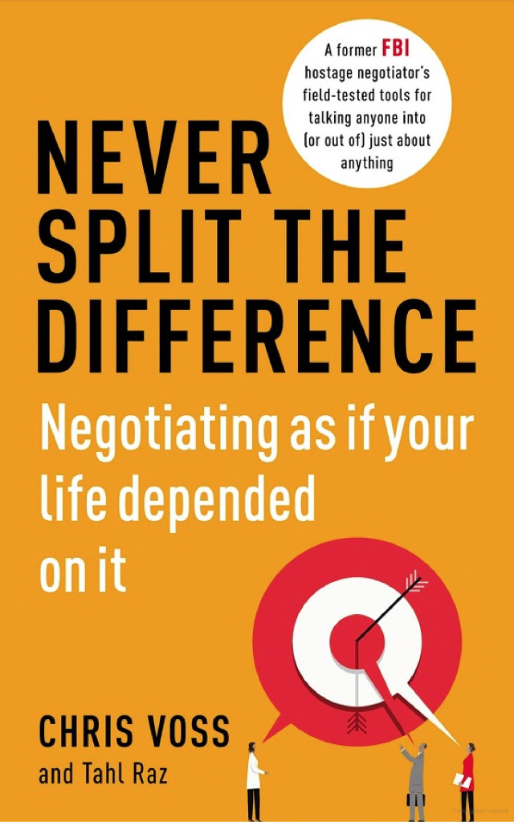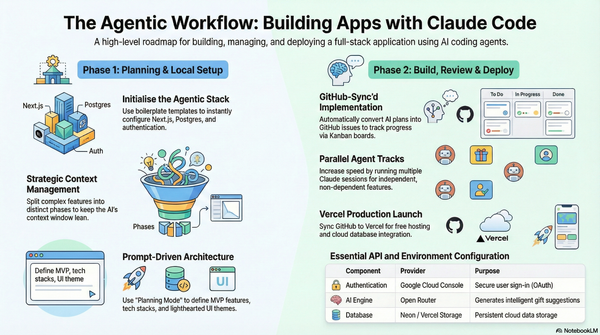Never Split The Difference: Negotiating As If Your Life Depended On It

Author: Chris Voss with Tahl Raz
Central Theme: The book details the Black Swan Group's (BSG) approach to negotiation, drawing heavily on Voss's experience as the FBI's lead international kidnapping negotiator. It rejects the "Getting to Yes" style of principled negotiation in favour of an emotionally intelligent, tactical approach that aims to uncover hidden needs and motivations to reach a mutually beneficial outcome.
Key Concepts & Tactics:
1. Tactical Empathy:
- Understanding your counterpart's perspective, not just their position.
- Identifying and labelling their emotions to build rapport and de-escalate tension.
- Example: In a bank robbery standoff, Voss used a calming 'late-night FM DJ voice' to build rapport with the desperate robber. He labelled the robber's fear and frustration to defuse the situation.
Quote: "Empathy is why the three fugitives came out after six hours of my late-night DJ voice. It’s what helped me succeed at what Sun Tzu called “the supreme art of war”: to subdue the enemy without fighting."
2. The Power of "No":
- "No" is not rejection, but the start of a negotiation. It signifies safety, security and control for the speaker.
- Encourage "No" to uncover real concerns and needs.
- Example: Voss uses the question "Is now a bad time to talk?" instead of "Do you have a few minutes to talk?" This encourages a "No" response which reveals a better time to talk or a clear disinterest, both more valuable than a superficial "Yes".
Quote: "Great negotiators seek “No” because they know that’s often when the real negotiation begins."
3. Calibrated Questions:
- Open-ended questions starting with "What" or "How" to stimulate thinking and expansive answers.
- Avoid "Why" questions which often trigger defensiveness.
- Example: Instead of "Why did you do that?" rephrase to "What caused you to do that?" to understand the motivation without accusation.
Quote: "That’s why I refer to these questions as calibrated questions. You have to calibrate them carefully, just like you would calibrate a gun sight or a measuring scale, to target a specific problem."
4. "That's Right":
- The most powerful two words in a negotiation. Indicates the counterpart feels understood and creates a subtle epiphany.
- Aim for "That's Right" not just "Yes". "Yes" can be counterfeit or noncommittal.
- Example: Voss helped a football player overcome his fear of dodging tackles by leading him to say "That's Right" in acknowledging his flawed perception. This led to a shift in behaviour and ultimately, success.
Quote: "As you’ll soon learn, the sweetest two words in any negotiation are actually “That’s right.”
5. Black Swans:
- Unknown pieces of information that can change the entire negotiation.
- Unearth Black Swans through careful observation, listening, and calibrated questions.
- Example: A student intern uncovered a Black Swan by asking a seemingly innocuous question about a seller's timeline. The response revealed the seller's time constraints, giving the student significant leverage to negotiate a lower price.
Quote: "Black Swans are just a metaphor, of course. Think of Pearl Harbor, the rise of the Internet, 9/11, and the recent banking crisis. None of the events above was predicted—yet on reflection, the markers were all there. It’s just that people weren’t paying attention."
6. Bargaining Styles:
- Recognizing your own and your counterpart's style (Analyst, Assertive, Accommodator) can help predict their behaviour and tailor your approach.
- Use this knowledge to steer the negotiation in your favour.
7. Non-Verbal Communication:
- Be aware of voice tone, body language, and pronoun usage for insights into the other party's emotions and authority.
- Mirroring can build rapport and create a sense of connection.
8. The Negotiation One Sheet:
- A structured preparation tool to identify your goals, summarise the situation, anticipate accusations, formulate calibrated questions, and brainstorm non-cash offers.
Overall:
Voss champions a negotiation strategy that emphasizes emotional intelligence, empathy, and tactical manoeuvring. He argues that by mastering these skills, anyone can achieve better outcomes in any negotiation scenario.
Click here to purchase on Amazon today!

